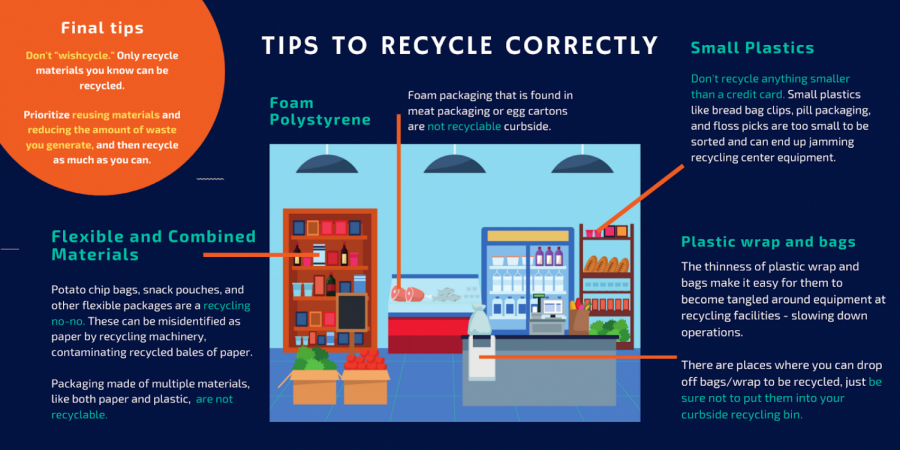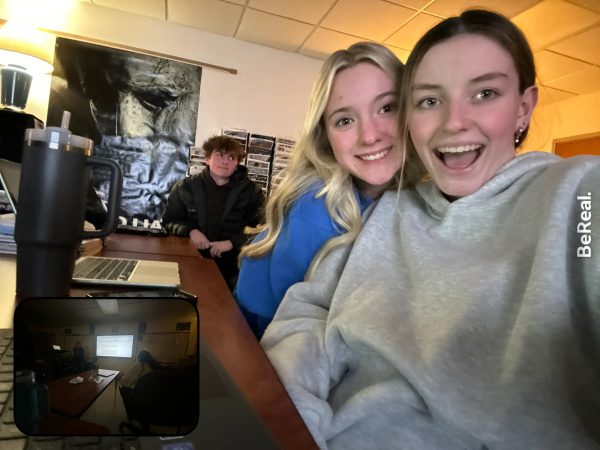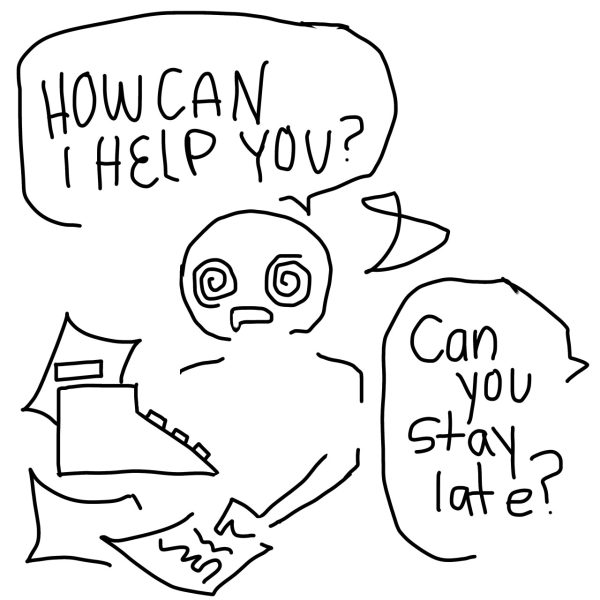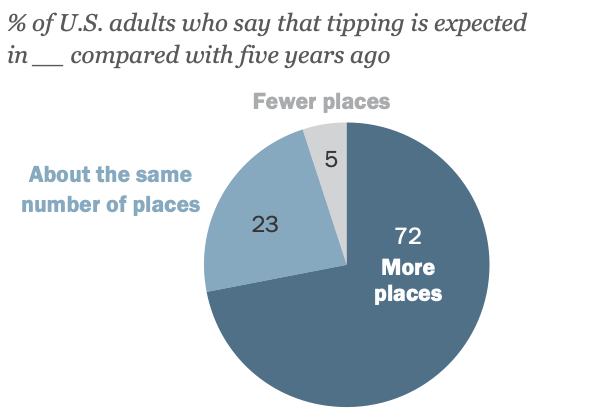Are You Just Pretending to Recycle?
My recycling journey started young. During the 5th grade, I started my first club ever: the Recycling Club. Many of us have been recycling our entire lives, but what if we actually haven’t been recycling at all?
Only 35% of the total waste generated by Americans in 2017 was recycled or composted, according to the Environmental Protections Agency (EPA). That means over 170 tons of waste ended up either buried under the Earth’s natural rug (also known as the ground) in landfills or scattered amongst dumps, oceans, and other places trash was never meant to call home. One could say that garbage is the invasive species none of us saw coming, and most of us are now ignoring.
Why isn’t recycling working for the US? The problem can be traced back to the 1990s, when China established itself as the dumping ground for the world’s trash. Recycling could be done cheaper — and more profitable — than ever before by relaxing the previously rigorous sorting process and adopting a “single-stream” method and shipping our trash to China to deal with. With this method, which can be characterized by the limited sorting of materials and contaminated goods, “As much as 30 percent [of] single-stream recyclables [are] contaminated by non-recyclable materials,” according to sierraclub.org.
When China closed its doors to the world’s garbage in 2018 with its “National Sword” policy, which banned the importation of some types of solid waste and instating strict limits of contamination of recyclable materials, America was left with recycling facilities lacking the infrastructure they needed to effectively recycle the perpetually growing amount of trash produced.
This lack of machinery has pushed places like Deltona, Florida, Enterprise, Alabama, and Gouldsboro, Maine to end their curbside recycling programs. Other communities have limited the amount or type of recyclable materials they accept to their recycling plants, resulting in more potentially recyclable materials ending up in landfills.
It is incredibly important to recognize that we as consumers are not powerless. We can advocate for more comprehensible recycling labels on containers and the institution of bottle taxes, both of which can encourage people to recycle. In addition, by recycling correctly we can reduce the amount of contamination that occurs during the recycling process to maximize how much we can recycle. For example, by not putting uncleaned food containers into the recycling bin, we can help preserve the paper already in the bin from becoming wet, moldy, and effectively un-recyclable.
We all have our role to play when it comes to keeping trash out of landfills. Although change needs to also occur at a legislative level, like through funding the creation of new infrastructure for recycling facilities, encouraging producers to clearly label their products, and pressuring companies to move to more eco-friendly packaging — we can still make a monumental impact as consumers by being intentional about how we recycle.
*Editorial policy: Any column, editorial, or letter to the editor expresses the opinion of the author and not necessarily the entire staff. The staff editorial does not necessarily reflect the views of the entire staff. The Norse Star is a public forum written and produced by the students at Stoughton High School, and they are solely responsible for its content. Students, staff, faculty, and members of the community are welcome to submit letters to the editor of 300 words or less.

As a senior, Anna is the Business Manager and a Staff Writer on The Norse Star. When Anna is not writing for the Norse Star, she is volunteering her time...







